Ahmed Deedat; Global Figure of Islamic Propagation
Suppose, if asked who is the most influential and high-profile intellectual propagator of the twentieth century, almost 80% would unanimously answer; Sheikh Ahmed Deedat.
Benefacted writer, polymath and dexterous in every wake of expertise, Deedat has been discussed so much up-to-date circumstances. Being a Muslim missionary, his works and lectures had a unique position among the pastoral Christian biblical scholars. Deedat, as the expert of more than twenty different languages, he could convince the audience through his eloquence and scholarship.
Deedat’s arguments, whether it pertains with Christology or not, have been very well authenticated from the very sources of reference. This, as Phillip Scheepers says, indeed qualifies him to be entitled "al-Sheikh" as he is commonly referred to in the Middle East.[i] His eternal message is “Come to the light or stay in the dark, the choice is yours.”[ii]
Glimpse to Life of Ahmed Deedat
Born on July 1, 1918 at Surat, India later at the age of nine he, along with his father, migrated to Durban, South Africa. He got miserable upbringing there in terms of prosperity, often his family suffocated with financial constraints and since he ended school education at Madrassa Anjuman schools and Sastrich College very early. And after the termination of education soon he turned to earn livelihood and did it as shop keeper.
In 1936 he was working on a Muslim-owned store near a Christian seminary. The young missionary trainees, taking him ignorant, posed a plethora of unanswerable questions as insults upon him. In fact, they bombarded upon him what they were taught in the classroom against Islam. He, being a simple Muslim, was perplexed by this sudden attack. But consequently, escaping from the shock of bewilderment, it instilled stubborn flame of desire within him to counter their false allegations.
Deedat says that the students used to come to our shop for buying sugar, rice, flour etc. and then they would start throwing statements like “you know Muhammad had so many wives”, “you know Muhammad spread his religion by the point of sword”, “you know Muhammad copied his book from the Jews and Christians”
He tried to search for proper books and fortunately he found a marvelous treatise named Izharul Haq (‘Truth Revealed’ which was written in 1864) by Maulana Rahmatullah Kairanvi who already had a challenging debate with Bishop Fender on April 9, 1854 at Agra. Young Deedat decided to dedicate his life study the follow arguments of Christian missionaries and to answer them based on Quranic and biblical verses. He purchased his first Bible with unprecedented yearning and studied the book in the basement of his employer, often trying to memorize it as far as he could. And in the next week he was able to defend himself and counteract the trainees in a befitting manner.[iii]
Deedat says “this book actually changed my life, had it not been that I came across this book I would not have been doing what I am doing today”.[iv]
He got another opportunity when a new Muslim convert Fairfax began classes on Bible and on how to preach Islam to Christians. Ahmad Deedat joined the course but after few months Fairfax left the classes. And as God’s fate Deedat who was by that time quite sincere in his efforts took over the class as the tutor.
A decade later, tens of thousands of people attended the city halls in Johannesburg and Cape Town to hear his talks and dissertations. That was the beginning of tremendous journey enriched with propagation that sustained for more than five decades.
In 1996 he suffered a serious stroke and become bedridden for nine years. For being paralyzed, he was unable to speak or write. Even in this situation dozens of letters were sent to him and visitors daily came to pay him respect for his great contribution to Islam. Despite ailments he encouraged them, through signalling, to continue the da’wah work with unflinching zeal. Although doctors initially gave him little chance to live, Deedat continued to engage in religious work until his demise. Sheikh Ahmad Deedat breathed his last on 3rd Rajab 1426 (August 8, 2005) at his home and was buried at Verulam cemetery in Kwazulu- Natal province, South Africa.
Institutionalized Propagation of Deedat
Deedat commenced his propagation journey in the early fourth decade of the past century. After delivering the first public speech he immersed in thought of constructing a da’wa centre to promote the noble work and to contribute skilful propagator to save humanity from going astray and to instruct them to righteous path.
In 1957 Deedat founded the Islamic Propagation Center (IPC) which was later renamed as Islamic Propagation Center International (IPCI). The center is aimed to establish bridges across different faiths to make them embrace Islam through mutual harmonious and healthy debates and discourses. Ghulam Husain Vanker and Taher helped him for publication of books and arranging classes for the ever-increasing Muslim converts. The Muslim community of South Africa supported his efforts.
In 1958 after delivering a lecture Deedat was offered a land of 70 acres for the sake of Islamic propagation by a person named Haji Qadwa. This made Deedat able to fulfill his dream of establishing an Islamic school to prepare propagators. Deedat, thus, with the cooperation of his friends and followers, established the Al Salaam Educational Institute at Braemar. Later he left As-Salam and again got involved in video lectures and debates.
Reputation and Controversy
It is undoubtedly proved that any public figure would be haunted by trivial and lethal type of humiliation and mortification. Or either would be instilled accidentaly into it, albeit pious he may be. And this was also clear in Deedat’s life.
The first time that Deedat was involved in a controversy was in 1960 which pertained to the transfer of the As-Salaam land. The conflict was between the donor of the As – Salaam land, Hajee Q.I.Kadwa and Ahmed Deedat. The conflict pertained to Qadwa's refusal to allow Ahmed Deedat to open a business at As-Salaam which he claimed was for Deedat's personal gain. Ahmed Deedat reasoned that the intended business was to profit the IPCI and not himself or any other person. For this reason the transfer of the As-Salaam into the name of the IPCI was delayed. Some of the leading 'ulama' from Durban were brought in to resolve the matter. The matter was resolved amicably after a few years.[v]
Another controversy in 1989 that sparked sharp responses from a few individuals was the removal of the booklet entitled "Islam's Answer to the Racial Problem," from the IPCI's official booklist. Abdulla Deedat, the brother of Ahmed Deedat alleged that the book was removed because the Centre felt that it might offend certain Arab businessmen in the Middle
East. The Arab businessmen discriminated against their expatriate workers and this booklet was used by them to protest against their employers (11. The IPCI, however, explained that the removal of the booklet had nothing to do with the situation of employer/employee relations in the Middle East.[vi]
The controversies traced Deedat almost his life, from in and out of his propagative circle. The primary reason that lies behind that he continuously tried to radically undermine the foundations of Christian faith by referencing the key texts of Christianity.
This approach was markedly different from standard Muslim responses to Christianity that tended to simply reference Qur’anic teaching that Christianity was superseded by Islam and leave it at that.[vii]
Another controversy that Deedat faced in his propagative life was his close relations with the family of Osama bin Laden. Initially the building housing the IPCI was originally named the Bin Laden Centre, because of the family’s contribution of sizable donation for the construction of International Propagation Centre International (IPCI). And in the wake of 9/11 attacks, the name became a hot-button issue in the Muslim and Christian circles.
But, Deedat stood stubborn and unchanged in his stand. Nothing could culminate and put hindrance to his propagative journey. He firmly believed aggressive measures can nothing to do with healthy discourses. Deedat once himself stated: "He who takes his sword and tries to propagate with that will do little for himself".[viii]
Even Muslim leaders felt harassed and quite uncomfortable with Deedat’s ultra- aggressive approach towards the Christianity. At the same time, many others hailed it as the best way forward in convincing Christians to abandon their faith and accept Islam. His books and lectures have therefore been translated into a wide variety of languages and can still be found in mosques and Muslim bookshops all over the world.
Contribution of Ahmed Deedat
Deedat with his peerless personality in up-to-date propagation, as if he may be addressed as modern Gazali, could reach the zenith of recognition. Mentioning the significant and hilarious efforts endeavored by Ahmed Deedat in spreading the puritan ideology of Islam and its supersession over another, the committee for King Faisal award at Saudi Arabia, says, “King Faisal International Award for Service to Islam jointly of this year, 1406 Hijri. In appreciation to his continuous and serious efforts exerted in propagating Islam for around thirty five years, on the local, regional, international and global levels, particularly as regards the following: His serious participation in numerous Islamic conferences, Giving numerous lectures in a number of Islamic countries. His argumentation against the opponents of Islam, and debating with them in open meetings, his founding of "As-Salaam" - an Institution for raising up students and propagators, and training them to take up the task of Islamic propagation, his writings of a number of pamphlets and books published for the cause of the propagation and combating missionary activities. In addition to enlightening the Muslims on the principles of their Illustrious belief and the rules of their religion.”
As Brian Larkin notes: ‘His knowledge of English, his skill at debating, and his mastery of other scriptures endeared him to the millions who have seen his videos or read his tracts, millions of which are sent free of charge all over the world. Deedat’s source of authority, then, is an unusual one, drawing on the mastery of Christian rather than Muslim texts and his skill at English rather than Arabic.[ix]
It is pertinent and not-worthy to mention that besides his luminous skills in more than twenty languages, enabled him to overtly and explicitly state the Islamic principles. He, once, even challenged Mr. Swaggart that he can speak three languages instead of each one of its kind that Swaggart can speak.
Sheikh Deedat was most famous for his sharp and painstaking debating style, with which he stated the infallibility and objectivity of Islam. He had become a champion of global Dawah work along 1985. He, even, rented the prestigious Royal Albert Hall in London twice to debate the renowned Christian missionaries in front of packed audience.
It is quite amazing to think that Deedat was capable to quote the verses of bible from his memory both in English or Hebrew to establish Islamic point of view and every lecture ended with question answer session which enabled Christians to line up with their Bibles.
It is suffice to showcase the excellence of Deedat to know that throughout his career of lecturing and debating he found no question difficult enough, and he usually made them speechless by quoting verses from their own Bible.
In 1986, Deedat debated with Jimmy Swaggart. This debate took place at the University of Louisiana, USA with the efforts of the Islamic Students Association of Louisiana. According to the Leader's report, about 8000 people attended the debate.[x] At the same time, Swaggart was one of the prominent scholarly faces of Evangelical Christianity. This debate between Deedat and Swaggart often came to know as the greatest debate of the century.
lt was during the course of this debate that Ahmed' Deedat offered other world evangelists such as Billy Graham, Jerry Falwel and Pat Robertson, 10 000 dollars for a debate with himself on ANY topic relating to Islam and Christianity.[xi] And as first in the history, Deedat has even challenged the late Pope John Paul II to a debate in the Vatican . At whole, He became the Muslim response to a massive rise of the evangelical Christianity and a media presence to rival Christian preachers.
Deedat conducted Da’wa training programmes. The expenses of the candidates during the course were taken by the IPCI, if they had enough qualifications to join the programme. The first Da'wah training Programme was organized for candidates from all over the world. A second one was held in 1989 for candidates from Africa only. About twenty candidates from eighteen different countries attended the first programme. In the second programme. Lectures of the programme were conducted by Ahmed Deedat, Abdulla Deedat and a visitor from the United States, Hamza Abdul Halik.[xii]
Since the inception of the IPCI, the importance of understanding the Qur'an has been consistently emphasised. To this end, daily extracts of Qur'anic verses were placed in local newspapers. At times, the IPCI printed specific verses of the Qur'an on sheets of card-board in gloss to enlighten Muslims about specific issues.[xiii]
Way of Propagation
The traditional ways of propagation of Islam mainly focused on authoring the religious books and beyond it to conduct the sermons in masjids or religious centers. And it was understood as nonsense and apostasy to intervene in public debate with other religious clerics. Any by the twentieth century, the efforts of wounding of ill-intended Christian missionaries provoked the sentiments of Muslims. So, the combating in the ways of tit-for-tat was understood to be indispensable. Deedat was one of those who understood, with it all necessities, the relevance of public debates and discourses.
He presented the Islamic viewpoint in a dogmatic and aggressive manner with a no apology at any time: answering the harsh toned questions of opponents, quoting from the Bible. During these debates Deedat was all set to dash out the hollowness Christian beliefs.
The main subjects of his debates were “ls the Bible True Word of God?” and “Is Jesus God?” which he discussed with Swaggart in US, Anis Shorosh in UK, Pastor Stanley Sjoberg in Stockholm Sweden and Pastor Erick Bock in Copenhagen, Denmark. These debates were recorded on video and distributed in the thousands throughout the world. Deedat's candour and fiery debating style also stirred controversy.
In France, the sale and distribution of Deedat's writings were banned in 1994 for what was described as a violently anti-Western, anti-Semitic tone inciting racial hatred. And in Australia, where Deedat gave a tour shortly before his stroke, Franca Arena – a member of New South Wales' legislative council - gave a speech on racism, in which she claimed that during his tour, Deedat "indulged in Bible-bashing and incited racial hatred". The detractor spread that his talks cherished of hatred and furious and creating heinous lacuna between the different backgrounds.
According to University of Cape Town's Abdulkader Tayob, Deedat's work represented a new way of da'wah, or preaching Islam. This was "very different from the past, and certainly more akin to Christian groups," said Tayob. "This is not good or bad - but worth reflecting on.”[xiv]
Achievements of Deedat
Among the propagational carrier of more than five decades, Deedat, has influenced tens of thousands of peoples, irrespective of scholars, laymen, poor and rich. High-profile modern day Mulsim scholars like Zakir Naik[xv] and Shabir Ally[xvi] have reiterated Deedat as a major influential ideologue and often employ arguments first pioneered by him.
In 1988, Deedat presented a series of talks during the month of Ramadan which broadcasted on several ·television channels in the Middle East. In the same year a United Arab Emirates TV crew arrived in South Africa to cover first-hand details of Deedat's works.
Student During the past few years (1986-1991),Deedat has presented talks in the United States of America, Hong Kong, India, Horocco, Egypt, United Arab Emirates,Sweden, Al-Dammam, Saudi Arabia, Pakistan and several other countries in Africa and Asia. He has met a variety of persons such as the former head of Uganda, Idl Amin, the ex- boxing champion, Muhammad Ali, Sister Aisha Lemu from Nigeria, the heads of several Islamic Universitles. Shaykh Zayed Bin Sultan A1-Nahayan,President of Al Ain University and several other leading Muslims.[xvii]
Deedat’s Christological Revolution
Ahmed Deedat is considered as one the great missionary scholars of Christology both from Islamic and Christian sides. As the studies about ‘Deedatian Revolution’ imply that it had far-reaching results, it could be analyzed as zealous effort of puritan Muslim to save whole human kind from absurd and superseded beliefs.
Deedat often made the claim that Islam provides Mary with a much more honourable position than is the case in Christianity. He points to the fact that there is an entire chapter in the Qur’an that carries her name (Chapter 19) known as ‘Sura Maryam’ or ‘Mary’s Chapter’) while there is not a single book in the Bible that carries her name.
One of Deedat’s major issues with the Christian view of the birth of Jesus is his total rejection of the concept of the preexistence of Christ. This is not surprising as ascribing pre- existence to Jesus would obviously raise serious questions about the Muslim doctrine that Christ was nothing more than a prophet. Deedat, describes the birth of Jesus as an act of creation similar to the creation of Adam. He comments as follows on Qur’an 3:47: ‘This is the Muslim concept of the birth of Jesus. For God to create Jesus he merely has to will it. If he wanted to create millions like Jesus without fathers or mothers he merely has to will them into existence.”[xviii]
Deedat claims that it is only possible to refer to Jesus as the ‘Son of God’ in a very limited sense (i.e. that all human beings are children of God). He quotes Romans 8:1437 and comments as follows: ‘Can’t you see that in the language of the Jew, every righteous person, every Tom, Dick and Harry who followed the Will and the Plan of God was a son of god.
Although he nowhere uses the term ‘Historical Jesus,’ Deedat often engages in attempts to reconstruct the life of Jesus on the basis of historical speculation. He ends up not too far removed from the conclusions of some of the first proponents of ‘Historical Jesus’ research, namely that Jesus was allegedly a revolutionary intent on overthrowing Roman power in Palestine. Christians go beyond what the Qur’an regards as proper boundaries[xix] by worshipping Jesus often introduces a sour note into any discussion of the life and ministry of Christ by Deedat.
Telling about crucifixion, the basis of Deedat’s argument, is not new historical research on the life of Jesus or a close reading of the Gospels but simply the well-known denial of the crucifixion in the Qur’an: ‘They said (in boast), “We killed Christ Jesus the son of Mary, the Messenger of Allah”—but they killed him not, nor crucified him, but so it was made to appear to them, and those who differ therein are full of doubts, with no (certain) knowledge, but only conjecture to follow, for of a surety they killed him not—nay, Allah raised him up unto Himself; and Allah is Exalted in Power, Wise’ (Qur’an, 4:157-158, Yusuf Ali). In line with his views on the supposed ‘resuscitation’ of Jesus Deedat claims that the appearances of Jesus to his disciples and followers on the Sunday morning is further proof that he never really died. He bases this view in part on the fact that Mary went to his grave to anoint Jesus’ body.[xx]
Deedat as Prolific Author
The primary sources for the reconstruction of Mr Deedat’s Christology are obviously his books. There are several titles in which he directly addresses the issue of the identity, nature and ministry of Christ. These include the following: What Was the Sign of Jonah? (1976)[xxi], Who Moved the Stone? (1977)[xxii], Resurrection or Resuscitation? (1978)[xxiii], Christ in Islam (1983)[xxiv], Crucifixion or Cruci-fiction? (1984)[xxv], and The Choice–Islam or Christianity? (1993)[xxvi] The ideas and arguments presented in these books will form the basis of this section while other smaller works of Mr Deedat will also be consulted as needed.
His books such as Crucifixion or Cruci-Fiction? and What the Bible Says About Muhammed challenged Christian beliefs and proposed alternative interpretations of the Bible. He wrote the following concise and impressive palm-sized books which were printed and distributed in the millions around the globe. “Is the Bible God’s Word?”, “What The Bible Says About Muhammad” “Muhammad: The Natural Successor to Christ”, “Muhammad The Greatest”, “AI-Qur’an the Miracle of Miracles”, “What is His Name.”
Conclusion
Deedat, being an Islamic scholar of twentieth century has left behind glorious heritage of propagation. Moreover, engaging in unstoppable and recurring propagative works, he is considered one of the most influential and intellectual peerless figure of modern propagation. Plenty of works, academically and non-academically, have been written about his life and contribution. Nevertheless, it could not be encompassed in few books or dissertations, for it seems to be more meaning-fetching and amazing as far as delving into the splendid chapters. In facts, his ideas and arguments have outlived into us.
Endnotes
[i] Page 110, An Analysis of the Christology of Sheikh Ahmed Deedat -Phillip Scheepers
[ii] Page 1 Ahmad Deedat: Man of mission- Abu Tariq Hijazi
[iii] Page 2 Ahmad Deedat: Man of mission -Abu Tariq Hijazi
[iv] Page 3 Quoted From Ahmad Deedat: Man Of Mission - Abu Tariq Hijazi
[v] Page 110 Tue Role And Contribution Of Tue Islamic Propagation Centre International In True Field Of Da’wa By Riaz Cassin Jamal
[vi] Ibid 114
[vii] page 1, An Analysis of the Christology of Sheikh Ahmed Deedat- Philip Sheepers
[viii] Quoted from article remembering the life of sheikh ahmed Deedat
Dariusz Dziewanski
[ix] 3 Brian Larkin, ‘Ahmed Deedat and the Form of Islamic Evangelism’ in Social Text 96
(Duke University Press, Fall 2008), 105.
[x] "Deedat vs Swaggart"in The Leader,Durban,28 Nov 1986, p 1
[xi] Page 146, Tue Role And Contribution Of Tue Islamic Propagation Centre International In Tue Field Of Da' Iah By Riaz Cassin Jamal
[xii] Al-Burhaan,April 1988,Vol 1.No.2. P 1.
[xiii] Page 16,1 Tue Role And Contribution Of Tue Islamic Propagation Centre International In Tue Field Of Da' Iah By Riaz Cassin Jamal
[xiv] Article, Remembering the life of Sheikh Ahmed Deedat: Dariusz Dziewanski
[xv] Indian medical doctor Zakir Naik is perhaps the best known Muslim apologist in the world today. He has proclaimed he is indebted to Deedat on both his arguments and methodology.
[xvi] Shabir Ally is a Canadian Muslim apologist with a very wide following in the West. He has conducted in debates with William Lane Craig, John Dominic Crossan and James White.
[xvii] Page 126 Tue Role And Contribution Of Tue Islamic Propagation Centre International In Tue Field Of Da' Iah By Riaz Cassin Jamal
[xviii] Ahmad Deedat, Crucifixion or Cruci-fiction? (Durban: IPCI, 1983), 24.
[xix] ‘O People of the Book! Commit no excesses in your religion: Nor say of Allah aught but the truth. Christ Jesus the son of Mary was (no more than) a messenger of Allah, and His Word, which He bestowed on Mary, and a spirit proceeding from Him: so believe in Allah and His messengers. Say not ‘Trinity’, desist, it will be better for you: for Allah is one Allah: Glory be to Him: (far exalted is He) above having a son.
To Him belong all things in the heavens and on earth. And enough is Allah as a Disposer of affairs’ (Qur’an 4:171, Yusuf Ali).
[xx] ‘Do Jews massage dead bodies after three days? The answer is NO! Do the Christians massage dead bodies after 3 days? The answer is NO!
Do the Muslims (who are the nearest to the Muslims in their ceremonial laws) massage dead bodies after three days? And the answer is again NO!’ Ahmad Deedat, Crucifixion or Cruci- fiction? (Durban: IPCI, 1984), 44
[xxi] Ahmad Deedat, What Was the Sign of Jonah? (Durban: Islamic Propagation Centre, 1976).
[xxii] Ahmad Deedat, Who Moved the Stone? (Durban: Islamic Propagation Centre, 1977).
[xxiii] Ahmad Deedat, Resurrection or Resuscitation? (Durban: Islamic Propagation Centre, 1978).
[xxiv] Ahmad Deedat, Christ in Islam (Durban: Islamic Propagation Centre International, 1983).
[xxv] Ahmad Deedat, Crucifixion or Cruci-fiction? (Durban: Islamic Propagation Centre, 1984).
[xxvi] Ahmad Deedat, The Choice–Islam or Christianity? (Durban: Islamic Propagation Centre, 1993).
(Completed Bachelors of Arts from University of Calicut and now pursuing masters in Jamia Millia Islamia, New Delhi. Worked as lecturer in Darussalam Islamic Academy, Thalassery, Kerala. Gmail: nihalmoothali@gmail.com. Contact: 8589040783
Disclaimer
The views expressed in this article are the author’s own and do not necessarily mirror Islamonweb’s editorial stance.

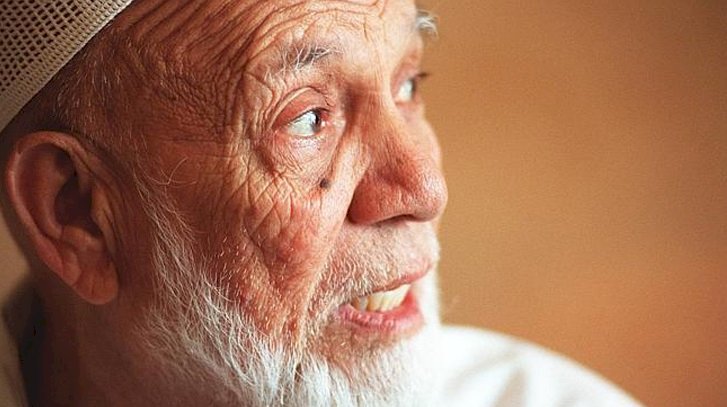


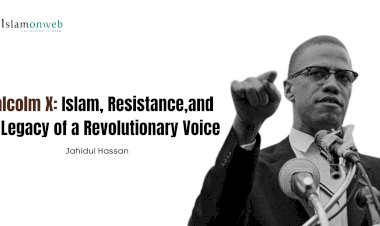
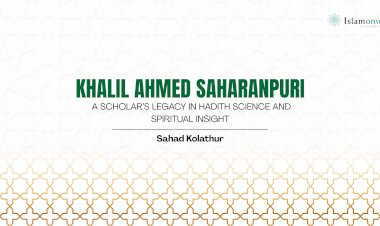
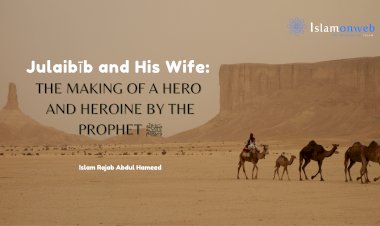
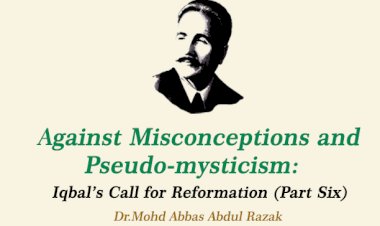
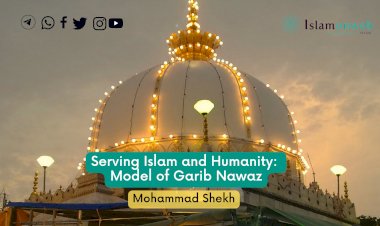
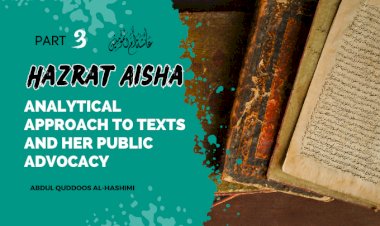














Leave A Comment